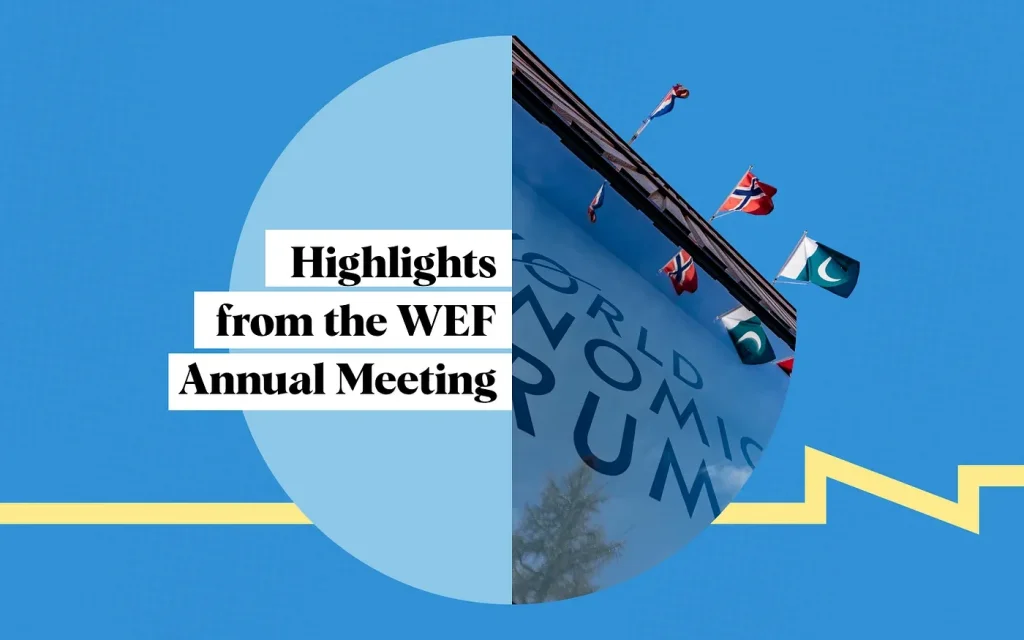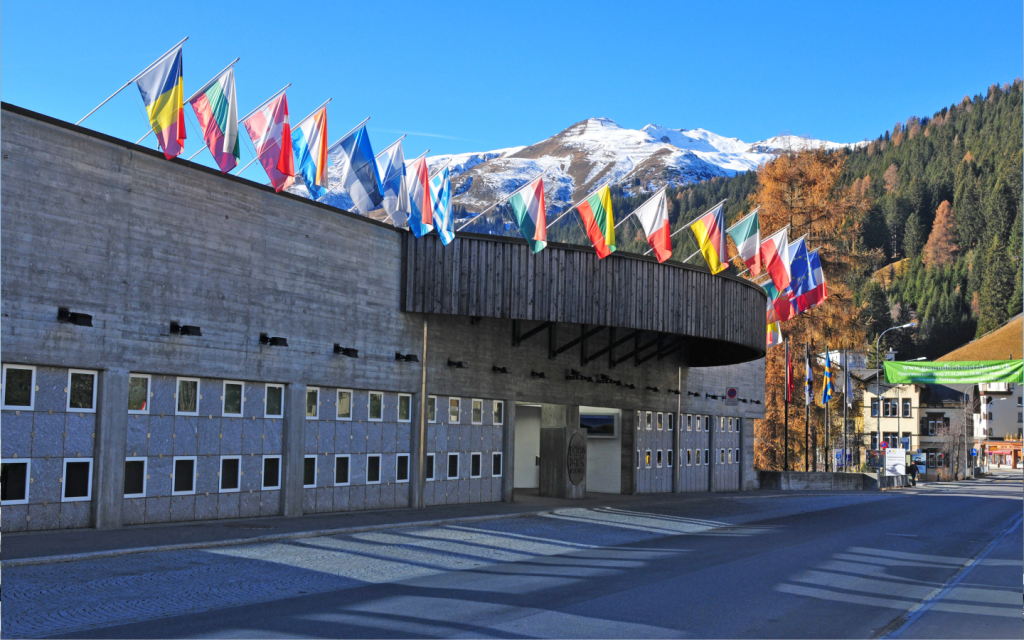
After a week of highly engaging discussions, the World Economic Forum Annual Meeting in Davos has come to an end. The event gave us the opportunity to elevate the voice of the developing carbon dioxide removal (CDR) industry, representing direct air capture (DAC) towards world leaders and key industry players, this year on the theme of “Cooperation in a fragmented world.”
Climeworks was represented by co-founder and co-CEO Christoph Gebald, Chief Climate Policy Officer Christoph Beuttler, Chief Marketing Officer Julie Gosalvez, and Chief Commercial Officer Jan Huckfeldt, as well as other leadership team members.
One major theme that stood out in Davos was the rising understanding of, and interest in, carbon removal technology, with companies such as ours emphasizing the need for certification to build trust among investors and society as a whole. In this article, we cover our key takeaways and touch on their implications for the future.

1. It was made clear that climate technology is a required complementary solution in the fight against climate change and a key one to scale now. The use of carbon removal technology was, in particular, emphasized as a necessary step in addressing historical and unavoidable CO₂ emissions.
As the Intergovernmental Panel on Climate Change (IPCC) states, we are at a point where reducing the world’s emissions is not enough to limit global warming to 1.5°C. We also need to actively remove CO₂ emissions from the air with carbon removal solutions. The IPCC estimates that direct air capture and storage (DAC+S) alone needs to remove up to 310 billion tons of CO₂ by 2100.
2. Carbon removal certification was recognized as key to building trust among stakeholders and advancing CDR technologies. Climeworks emphasized the central role of high integrity in its deployment journey and announced the delivery of its third-party verified CDR services to its first corporate customers, citing Microsoft, Shopify, and Stripe. Climeworks CDR services were verified by independent quality and assurance leader DNV.
This delivery was an important milestone for Climeworks, demonstrating its commitment to high-quality CDR, as well as an important achievement for the DAC industry more broadly, laying the foundation for a successful high-integrity DAC+S CDR market.
3. The Science Based Targets (SBTi) initiative was once again highlighted as a valuable ally for companies looking to set targets and, most importantly, take action based on scientific evidence. The importance of involving suppliers in scaling up climate technology was also emphasized. As many suppliers are often small and medium enterprises (SMEs), it is critical to involve them in the journey to achieve action at scale. “We can’t leave them behind,” thought Julie Gosalvez after attending the Decarbonizing Supply Chains conference at the SDG tent and in partnership with Bain & Company.

4. Climate education and a talented workforce are key to the fight against climate change. Climate education helps individuals understand the causes and impacts of climate change, as well as the actions that can be taken to mitigate them and adapt to its consequences. This knowledge is necessary for individuals to make informed decisions, take appropriate actions to reduce their own carbon footprint, and advocate for effective climate policies.
On the other hand, the need for talented employees in the climate industry arises because addressing climate change requires a wide range of technical and non-technical skills. This includes experts in fields such as renewable energy, energy efficiency, and carbon removal, as well as policy analysts, communication specialists, and social scientists. With a skilled workforce, it will be possible to develop and implement the technologies and policies needed to transition to a low-carbon economy while providing new jobs and numerous opportunities across geographies and communities.
5. The Davos meeting reinforced the idea that sustainability remains a top priority for companies and that technology will continue to play a major role in the fight against climate change. Despite the uncertainties and fragilities of the current period, companies are cautiously optimistic about the future. This is thanks to the high resilience of the labor market, as many countries are still reporting record employment. The contribution of digital and technological innovation is also seen as a key factor in helping companies to navigate these challenges, and it is clear that companies will continue to invest in these areas to support their sustainability and resilience goals.
Interested to learn more?
Learn how to assess the quality of carbon removal solutions in: Transparency in the carbon removal market.
Discover underground carbon dioxide storage by reading: What is underground mineralization of CO₂?
Check out our insights on: How carbon removal solutions fight climate change.
Lead the race toward net zero
High-quality carbon removal for your climate strategy.
